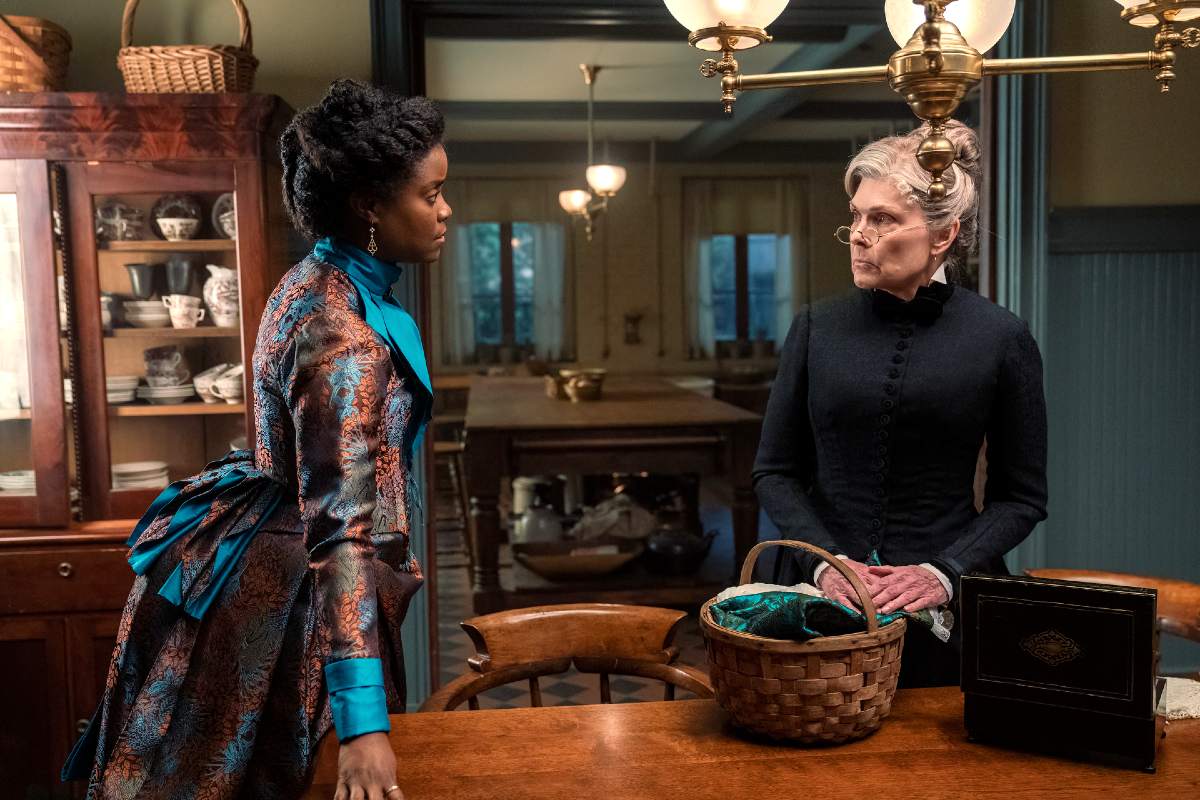‘The Gilded Age’ Delivers a Very Simple Lesson on Racism

HBO Max’s The Gilded Age may take place in the 1880s, but it’s still giving us very relevant lessons. Episode 2 of the second season, “Some Sort of Trick,” shows how ridiculous and self-destructive (not to mention cruel) racism is as a worldview.
During season one, Peggy Scott (Denée Benton) became the secretary of Agnes van Rhijn (Christine Baranski). This meant she would live in the van Rhijn household along with the other paid help. At first, several of the white servants were upset that Peggy, a Black woman, would be living with them. Most of them got over their overt racist leanings fairly quickly and welcomed Peggy—all except for Agnes’ lady’s maid, Armstrong (Debra Monk).
Armstrong repeatedly meddles in Peggy’s business and tries to get her fired. It comes down to Peggy resigning because Agnes wouldn’t get rid of Armstrong. This season, Peggy is back working for Agnes and Armstrong is just as terrible as before.
Agnes reminds everyone to just not be racist
We know Armstrong doesn’t have a great life outside of the van Rhijn house. She seems to be the only one caring for her ailing mother, who is even more awful than Armstrong herself. Her mother’s house is in a poor tenement area, so it isn’t like she is rolling money. However, none of that excuses her treatment of Peggy, which is based solely on Peggy’s skin color.
Despite the other woman’s hate, Peggy continues to be exceptionally kind to Armstrong. After Peggy sews for Armstrong, and Armstrong makes a snide comment rather than just saying thank you, Peggy says Armstrong doesn’t want her as an enemy. But Peggy isn’t the only one who has had enough of Armstrong’s racist behavior.
Agnes tells Armstrong that Peggy is coming back into the house. She issues the ultimatum that if Armstrong can’t be human to Peggy, Armstrong will be fired. As an older woman in a tight financial situation, the prospect of being without a job is daunting. She correctly complains no one would want to hire her since people like to train maids exactly how they want them. Being much older, Armstrong wouldn’t be an ideal candidate. And this is a time before social services existed like social security or retirement accounts.
Agnes reminds Armstrong of two very important things. One, Agnes is giving Armstrong an order as her employer and it is not something that is open to debate. And two, all of Armstrong’s fears would evaporate if she just stopped being racist. “Your fate is in your hands. If you show kindness to Miss Scott, then you may keep your position,” Agnes says with complete authority.
It’s a reminder to many racist people out there. You can get further in life by just not being filled with hate and attacking people for no reason. It’s really that simple.
(featured image: Max)
Have a tip we should know? [email protected]